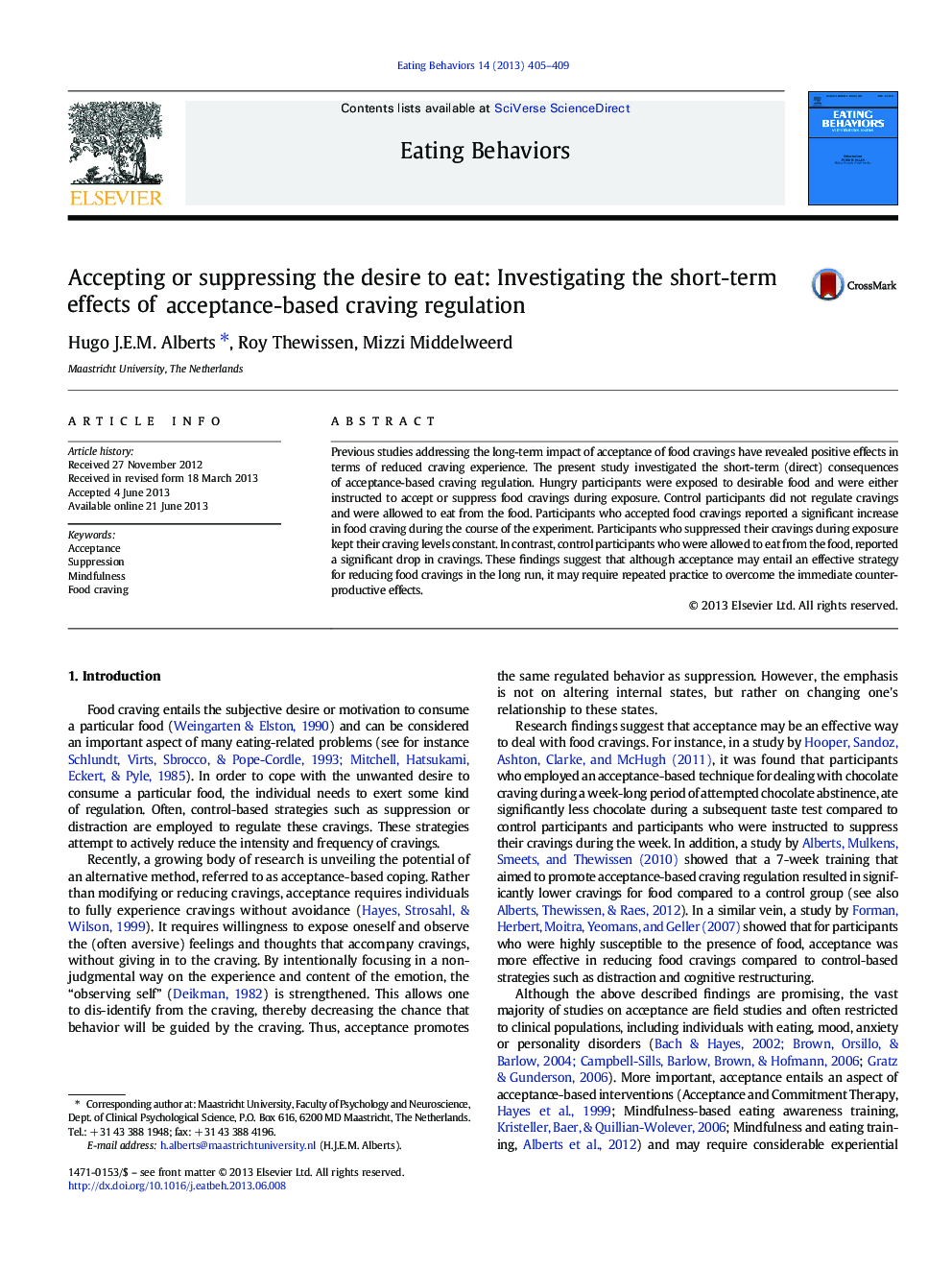| Article ID | Journal | Published Year | Pages | File Type |
|---|---|---|---|---|
| 906648 | Eating Behaviors | 2013 | 5 Pages |
•The direct consequences of acceptance-based craving regulation were tested•Accepting food cravings resulted in a significant increase in food cravings•Clinical treatment may benefit from informing clients on the observed effects
Previous studies addressing the long-term impact of acceptance of food cravings have revealed positive effects in terms of reduced craving experience. The present study investigated the short-term (direct) consequences of acceptance-based craving regulation. Hungry participants were exposed to desirable food and were either instructed to accept or suppress food cravings during exposure. Control participants did not regulate cravings and were allowed to eat from the food. Participants who accepted food cravings reported a significant increase in food craving during the course of the experiment. Participants who suppressed their cravings during exposure kept their craving levels constant. In contrast, control participants who were allowed to eat from the food, reported a significant drop in cravings. These findings suggest that although acceptance may entail an effective strategy for reducing food cravings in the long run, it may require repeated practice to overcome the immediate counterproductive effects.
